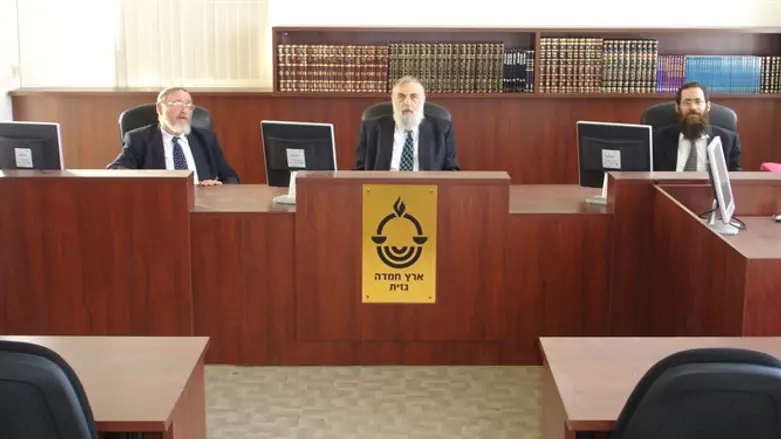
Rabbi Ido Rechnitz, a rabbinical court judge for the Eretz Hemdah Gazit Rabbinical Courts, spoke to Arutz Sheva about the challenges that rabbinical courts face prior to the "Torah Law in the State of Israel" conference on Sunday evening in Jerusalem.
Rabbi Rechnitz said that most people who turn to the rabbinical courts are from the National Religious public and even from the haredi public but secular people, as well as Arabs, also come to be judged and accept the authority of the rabbinical courts.
What happens when Arabs turn to the rabbinical courts and request that the judges rule for them according to Jewish law? Are the rabbinical courts even allowed to adjudicate for non-Jews according to Jewish law?
Rabbi Rechnitz said that "the default is to judge a non-Jew according to the law of his religion or society but in a case in which a Jew and a non-Jew together request to be judged according to Jewish law, we judge them in a Torah court."
Rabbi Rechnitz brought a proof from the Rambam in the laws of kings, which states: "Two non-Jews who come to be judged in Jewish courts - and both of them want this - they are judged in a Torah court."
Rabbi Rechnitz added that litigation in Torah courts is cheaper and faster than the secular courts, and is legally binding under the Arbitration Law. He added that anyone can opt for Torah law if they specify a rabbinical court as the arbitrator on any contracts they sign, like many individuals and companies already do.
Sunday evening's conference brings together organizations from Religious Zionism and the haredi world to discuss the place of Torah law in the state of Israel and its institutions.